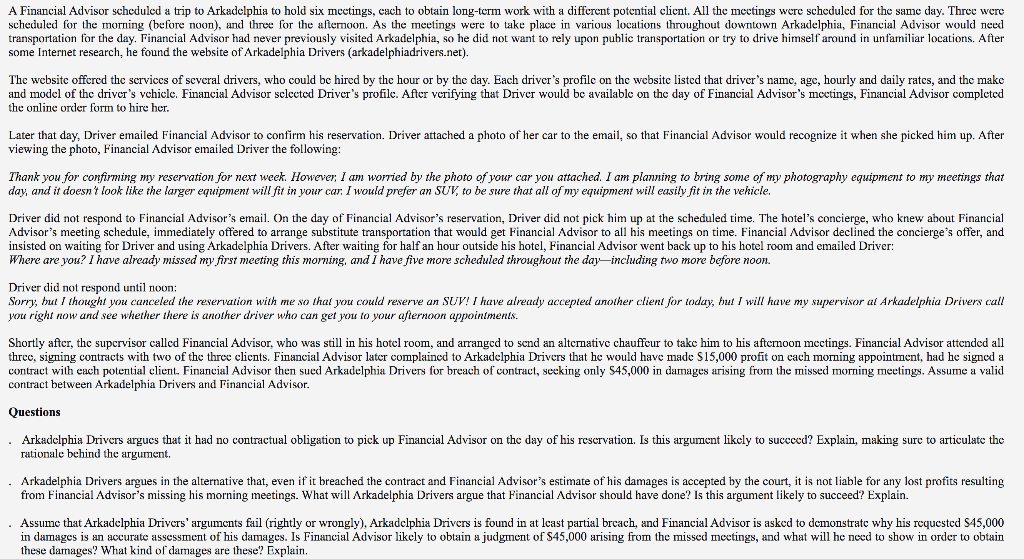Magistrates do not have a set list of special reasons, but in order to be a special reason it must fulfil the following criteria and must be; 1. A mitigating or extenuating circumstance. It must not amount in law to a defence to the allegation. It must be directly connected to the commission of the offence. Drivers who are involved in accidents are considered to be a bad risk because they cost insurance companies large amount of money. Speeding may be the fastest way to get from Point A to Point B, but it's not a very cost-efficient or a fuel-efficient solution. Rather you agree or disagree with having a speed limit; or even obeying the speed limit. But some of you do argue with liberals, though I don’t get why. See, liberals don’t argue either, mostly because they know no one else will buy the ideological garbage they are peddling.
Drivers Do Not Argue - No Arguments Needed Harm
How to argue—and win. We’ve all been there: in the middle of an argument it suddenly dawns on you that, no matter what you say or do, your opponent is going to take the win.
While each vehicle reaches its optimal fuel economy at a different speed (or range of speeds), gas mileage usually decreases rapidly at speeds above 50 mph. You can assume that each 5 mph you drive over 50 mph is like paying an additional $0.24 per gallon for gas. Sensible driving is also safer for you and others, so you may save more than gas money. $150 is the average speeding ticket in the U.S. And if speeding 80 or higher the fine can be even more, and may have had to appear before a judge, cited for reckless driving and even ended up spending some time in jail. Plus, if you receive points related to an auto accident or speeding, your insurance premium can increase by as much as 30 percent depending on how fast or serious the accident. Drivers who are involved in accidents are considered to be a bad risk because they cost insurance companies large amount of money. Speeding may be the fastest way to get from Point A to Point B, but it's not a very cost-efficient or a fuel-efficient solution. Rather you agree or disagree with having a speed limit; or even obeying the speed limit. It is our morally duty to accept the fact that lawmakers created speed limits in the citizens’ best interest to protect drivers for minor and fatal car accidents. Some citizens still question, if in fact the government claims to set speed limits are really for the public well-being, or simply to make a quick profit. Of course, one thing we can
Joe Jaconi’s company, Tech Armor, has shipped screen protectors, cases, chargers, cables and other accessories for mobile devices to over 3 million customers around the world. Think he’s ever had a customer issue or two?
“Oh yes,” he tells me. “It’s been known to happen.”
Like this one in 2013 when a customer who bought a screen protector from Tech Armor ended up putting it on upside down and posted his story on Amazon.
Rut-roh. You know this guy is going to want his money back. What do you think Jaconi did? I’ll give you the answer shortly.

Related: To Keep Buyers From Cheating on You, Always Be Loyal to Them
More importantly -- what would you do? How would you handle this problem? Your customers sometime complain, or have an unsatisfactory experience, sometimes even after a few martinis. Anyone running a business knows this. Sometimes it’s their fault. Sometimes it’s not. Some of them are justified. Some of them aren’t. It really doesn’t make a difference.
The difference between the companies that succeed and the ones that don’t is how they handle their customers’ problems. And the smartest business owners I meet, like Jaconi, have a policy: listen, return, track.
You always listen. You don’t argue. It’s not that the customer’s always right. It’s just that it doesn’t matter. You’re not going to win the argument.
The customer may be bringing up a legitimate product issue. When a client calls me to complain that one of our service people spent five hours on an issue when it should have only taken three, I just hear him out. When Jaconi’s customer-service group fields a call from a disgruntled customer, they just let them vent.
Drivers Do Not Argue - No Arguments Needed Human

“Most of the time a customer has a problem with one of our screen protectors because they didn’t follow the instructions,” he says.
Whatever the reason, it’s important to just let them get it out of their system. We’ve all learned that like any good political debate, the facts really don’t matter. It’s how they’re presented and what the response is. So what you need to do before doing anything else is just listen.
After letting a customer vent, Tech Armor’s policy is to replace the product. Or as Jesse Pinkman said in an episode of Breaking Bad after some crystal meth went missing: “Dude, it's called 'breakage,' OK? Like K-Mart. S**t breaks.”
Related: The Secret to Outstanding Customer Service
Look, stuff does break, and sometimes your crystal meth may go missing. It happens to the best of us. Every business person knows this. That’s why there are reserves. It usually costs less money and less time to just replace a product rather than haggle over it.
When a client argues that we spent five hours instead of three, I just credit him the two hours. Done. When a customer complains about one of Jaconi’s screen protectors he immediately ships a replacement. Done.
OK, so maybe your profit is hurt on that one job. But the customer gets neutralized and you’ve moved on to the next profitable deal.
Finally, you must track. Jaconi uses a simple help-desk tracking system where every one of his 3 million customers are entered after each transaction (call, email, shipment, etc.) is recorded. This is not difficult to do nowadays. Most good and inexpensive customer-relationship management systems (Zoho, Insightly, Nimble) can handle this. But it’s critical to use one.
With this, Jaconi’s service team can flag those customers that are -- well -- taking a little advantage? Like the ones that have called 10 times for a replacement. Maybe they’re really just reselling his screen protectors to their friends. Or maybe they’re just really dumb. The important thing is they’re being tracked.
I track my clients’ service calls. I know the good (99.5 percent) from the sneaky (.5 percent) ones. And for those sneaky ones I either decline future service or just charge more.
So what about the martini guy? Jaconi followed the feedback online and was quickly aware of the problem. After a long laugh, he replaced the product no questions asked. The story, and his response, went viral.
“You are hilarious and make me want a Bombay Sapphire martini,” one user wrote. “And hooray for the company that responded so well. I'm definitely getting these.”
Related: The 3 Things You Need to Do When You've Upset Your Customer
